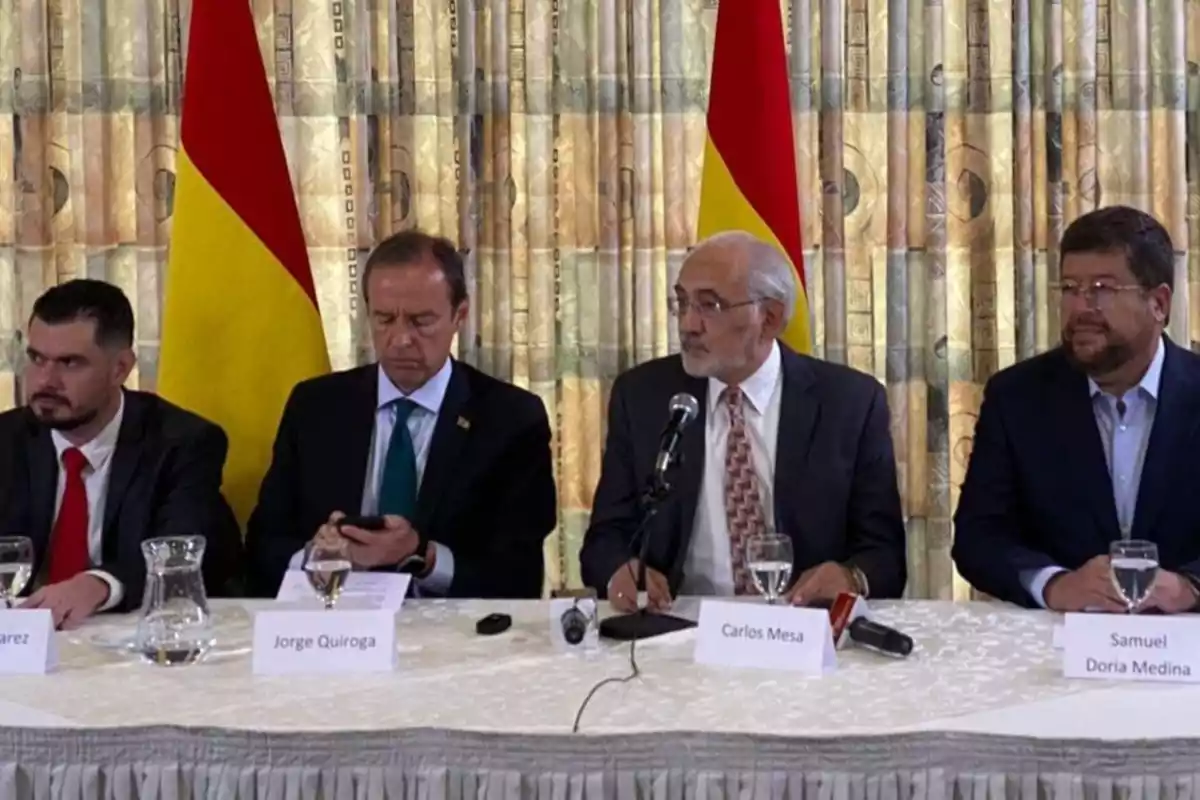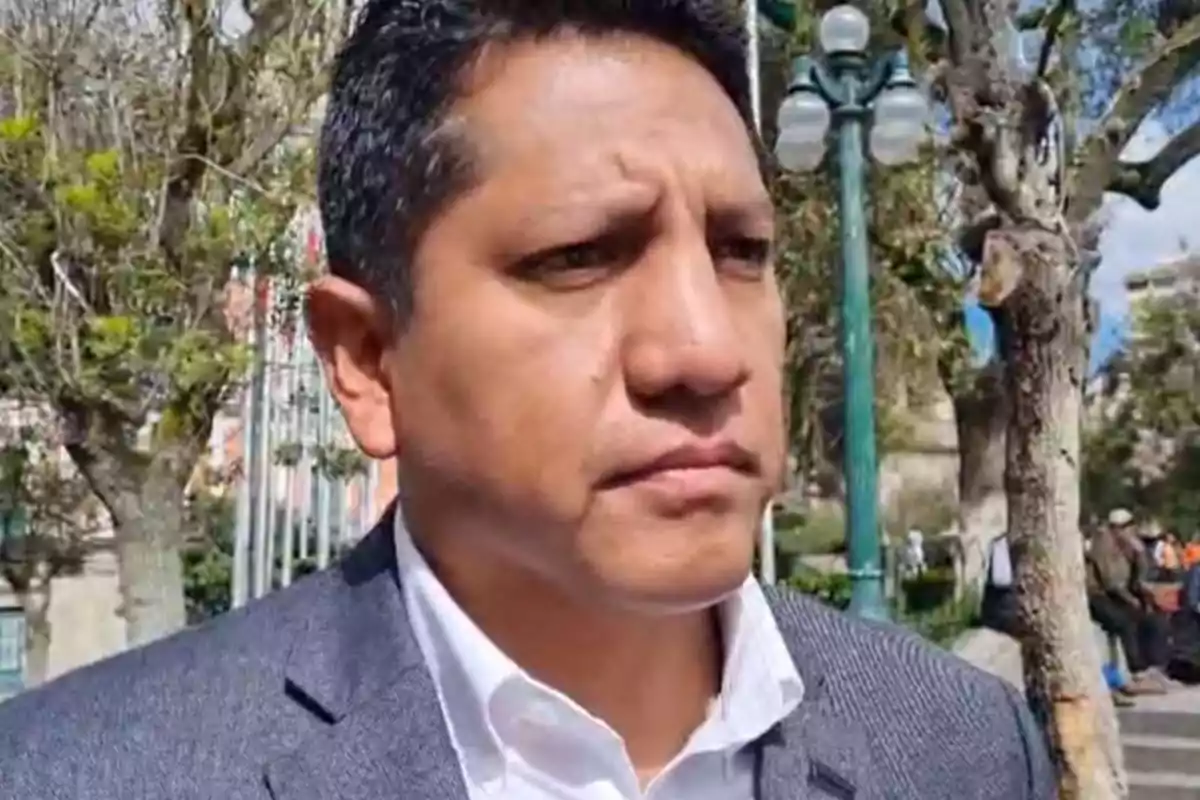
Crisis in the false opposition: Tuto Quiroga indicated he doesn't want polls
The rest of the members of the false unit clarified that the surveys will be conducted despite Quiroga's refusal
Jorge Tuto Quiroga announced on Thursday his decision to withdraw from the survey mechanism agreed upon by six opposition forces, stating that conducting these studies now would be illegal. According to his view, the Supreme Electoral Tribunal could use them as an excuse to disqualify any candidate. He confirmed that he will continue in the presidential race, but outside of that process.
The false unity had defined a system of three private surveys to choose the single candidate. Quiroga stated that he insisted on conducting them before the official call of the TSE, but he was not heard. He recalled the case of Beni in 2015, where a bloc was disqualified for commenting on a survey and indicated that he is not naive and that there are actors who want to take him out of the game.
Samuel Doria Medina was one of the first to criticize Quiroga and said that his attitude is like that of a team that doesn't want to play and leaves the league. He assured that the surveys do not violate any rules because they will not be released. He stated that even TSE members clarified that this type of study is allowed and that its implementation was agreed upon by all members.
Luis Fernando Camacho, governor of Santa Cruz, also spoke out. He regretted Quiroga's departure from the agreed mechanism, recalled that the bloc was born from the citizen mandate and must be sustained in unity. He said that this cause is above personal egos and assured that they will continue with the surveys.
Carlos Mesa, former president and spokesperson for the bloc, called for avoiding more ruptures. On his social media, he called for calm and stated that the country's interests must be above any internal differences. He insisted that the work must continue without rest, hinting that he will speak with Quiroga to rebuild the dialogue.
Andrea Barrientos, senator of Comunidad Ciudadana, was harsher and labeled Quiroga's stance as a political whim. She said that he is the only one of six actors who opposes the surveys. She criticized him for breaking the agreement signed by everyone and asked him to decide if he wants unity or protagonism.
According to Barrientos, the argument of illegality no longer has support, she recalled that there is a Constitutional Court ruling that nullifies article 136 of the electoral law. That article was the only one that allowed disqualification due to surveys and added that the agreed mechanism includes cross-auditing among the polling companies. Therefore, there is no room for doubts or manipulations.
Does the false unity fear the decision of the population?

From Unidad Nacional, Marco Fuentes also replied firmly and assured that Quiroga invents excuses to avoid an unfavorable result. He recalled that two surveys already released before the call place him behind Doria Medina and pointed out that the underlying problem is that, not legality. He accused Quiroga of lacking word and coherence.
Tuto Quiroga denied that it is a whim or fear of losing, he stated that his motivation is the defense of legality. He insisted that the bloc violated confidentiality agreements by leaking survey details and accused Unidad Nacional of violating internal pacts. Additionally, he asked to be heard by Carlos Mesa as the bloc's coordinator.
The pre-candidate warned that he will not accept impositions outside the legal framework. "Unity without legality is putting the opposition candidacy at risk," he pointed out. He reaffirmed his commitment to a profound democratic transformation and denounced that there are actors who want him out at all costs.

The crisis erupted after the survey questions were leaked, for Quiroga, that broke the agreements and unleashed distrust. Shortly after, results of a survey funded by Marcelo Claure were known. In that study, Samuel appears with an advantage over Quiroga, then the tension within the bloc quickly increased.
Camacho, Doria Medina, and Mesa agree that they will continue with the surveys, because they consider that it is the only way to have a legitimate candidacy. They reaffirm that the surveys are for internal use only and will not be disseminated. They accuse Quiroga of making excuses when the results do not favor him and warn that they will not stop for a single dissent.
Finally, the UN spokesperson recalled that all parties conduct surveys during a campaign. He stated that the TSE doesn't sanction internal use studies and said that Quiroga attended meetings where the agreed method was ratified. He pointed out that he then disappeared from the debate and reappeared with a different position, which demonstrates a lack of commitment.
More posts: